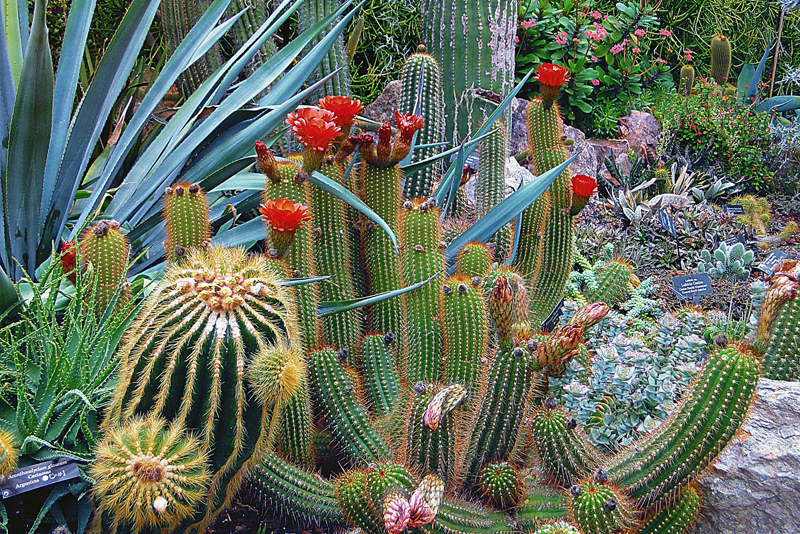Donkey's Tail Sedum

Native to Mexico, the donkey’s tail Sedum will never disappoint gardeners. This is one of the most popular succulents. Typically, it is a preferred houseplant.
This has lush succulent, tassel-like stems that trail or cascade. These can be three feet or more in length. With their cascading growth habit, they’re a perfect choice for hanging baskets or for displaying on plant stands. The plant is only about two feet or so in height.
The stems are covered with short, thick, tapered, greenish-yellow foliage that overlaps. Forming whorls, this has a bluish-silver bloom on the surface. The leaves grow to about ¾ inch in length, and are about half as wide. The
foliage is very delicate, shattering from the plant if they’re handled roughly.
There is a variegated form that has colorful foliage with creamy variegation along the center of the foliage.
Though it is somewhat reluctant to bloom, donkey’s tail has soft pink or purplish-pink, star-like flowers. These open in terminal clusters mostly in the spring. However, blooming can continue into the summer.
Donkey’s tail is known by various other common names. These include burro’s tail, and lamb’s tail as well as horse’s tail.
Used mostly as an indoor plant, donkey’s tail is only hardy to abut 38 degrees Fahrenheit or so.
Like all of the indoor Sedums, this needs full sun. Otherwise, the plant becomes weak, and growth is pale and unshapely.
As with most other tropical-like Sedums, donkey’s tail needs a rest during the winter months. During this time, the plant will need a slightly cooler temperature. About 50 degrees Fahrenheit is considered ideal. But, don’t let it fall below 40 degrees Fahrenheit.
Donkey’s tail will need watering during its active growth. Allow the top of the potting soil to become dry between waterings.
Go easy on the fertilizer. As with many Sedums, this usually doesn’t need any at all.
For potting soil, use a coarse, well-draining mix. For best results, use broad, shallow containers as this species doesn’t have a deep root system. Repot during the spring.
Donkey’s tail is propagated by stem cuttings during the growing season.
This has lush succulent, tassel-like stems that trail or cascade. These can be three feet or more in length. With their cascading growth habit, they’re a perfect choice for hanging baskets or for displaying on plant stands. The plant is only about two feet or so in height.
The stems are covered with short, thick, tapered, greenish-yellow foliage that overlaps. Forming whorls, this has a bluish-silver bloom on the surface. The leaves grow to about ¾ inch in length, and are about half as wide. The
foliage is very delicate, shattering from the plant if they’re handled roughly.
There is a variegated form that has colorful foliage with creamy variegation along the center of the foliage.
Though it is somewhat reluctant to bloom, donkey’s tail has soft pink or purplish-pink, star-like flowers. These open in terminal clusters mostly in the spring. However, blooming can continue into the summer.
Donkey’s tail is known by various other common names. These include burro’s tail, and lamb’s tail as well as horse’s tail.
Used mostly as an indoor plant, donkey’s tail is only hardy to abut 38 degrees Fahrenheit or so.
Like all of the indoor Sedums, this needs full sun. Otherwise, the plant becomes weak, and growth is pale and unshapely.
As with most other tropical-like Sedums, donkey’s tail needs a rest during the winter months. During this time, the plant will need a slightly cooler temperature. About 50 degrees Fahrenheit is considered ideal. But, don’t let it fall below 40 degrees Fahrenheit.
Donkey’s tail will need watering during its active growth. Allow the top of the potting soil to become dry between waterings.
Go easy on the fertilizer. As with many Sedums, this usually doesn’t need any at all.
For potting soil, use a coarse, well-draining mix. For best results, use broad, shallow containers as this species doesn’t have a deep root system. Repot during the spring.
Donkey’s tail is propagated by stem cuttings during the growing season.
This site needs an editor - click to learn more!

Related Articles
Editor's Picks Articles
Top Ten Articles
Previous Features
Site Map
Content copyright © 2023 by Connie Krochmal . All rights reserved.
This content was written by Connie Krochmal . If you wish to use this content in any manner, you need written permission. Contact
BellaOnline Administration
for details.


